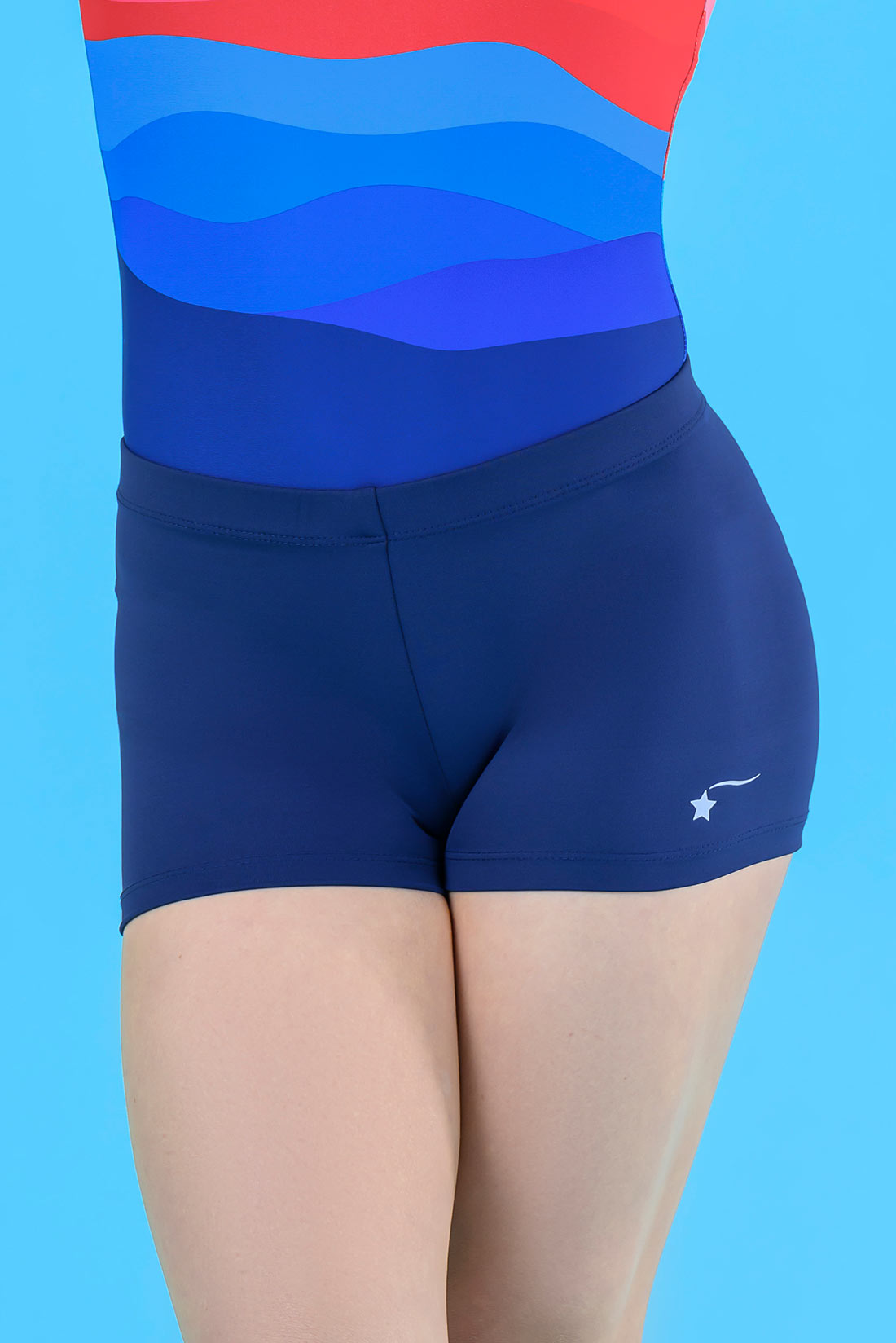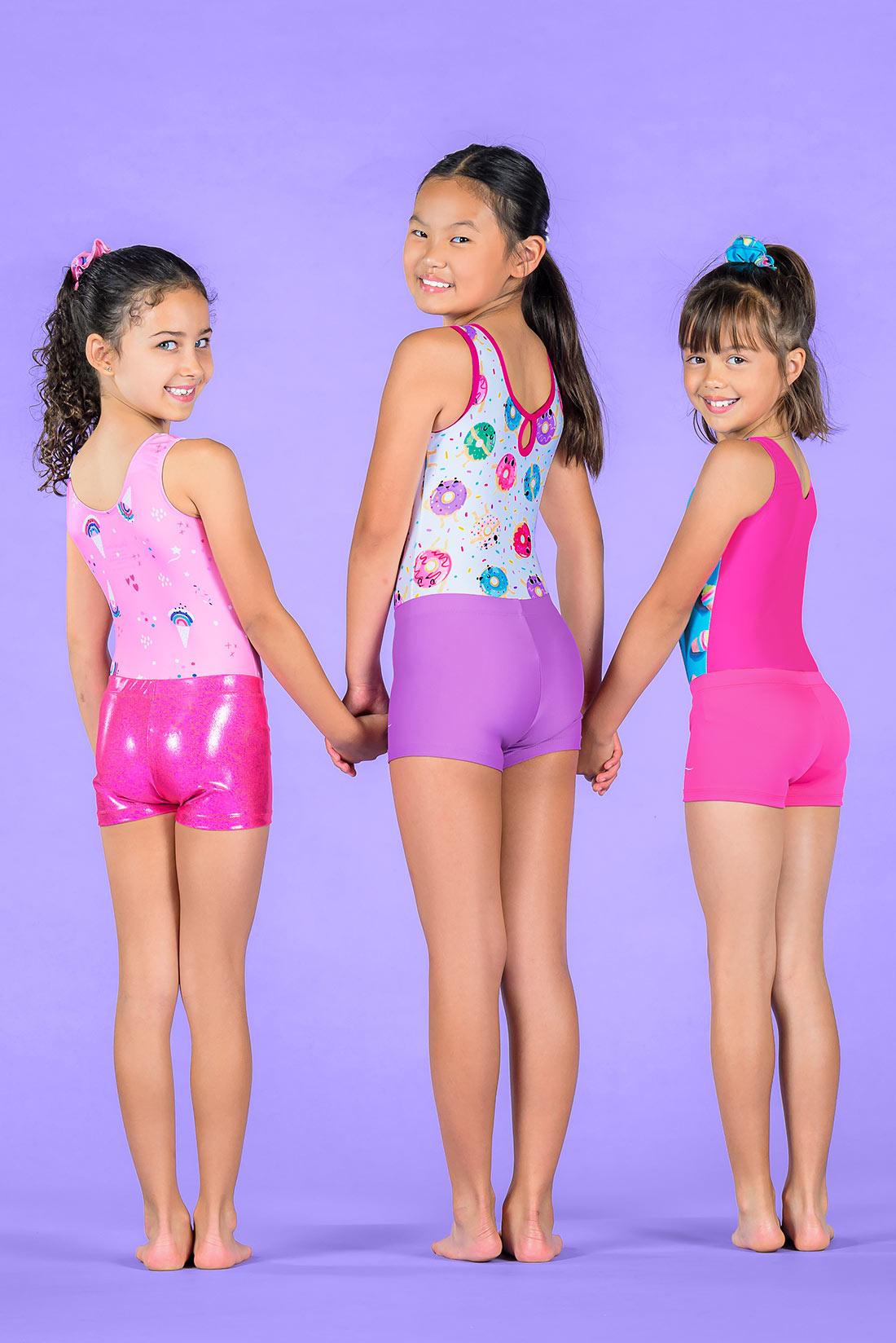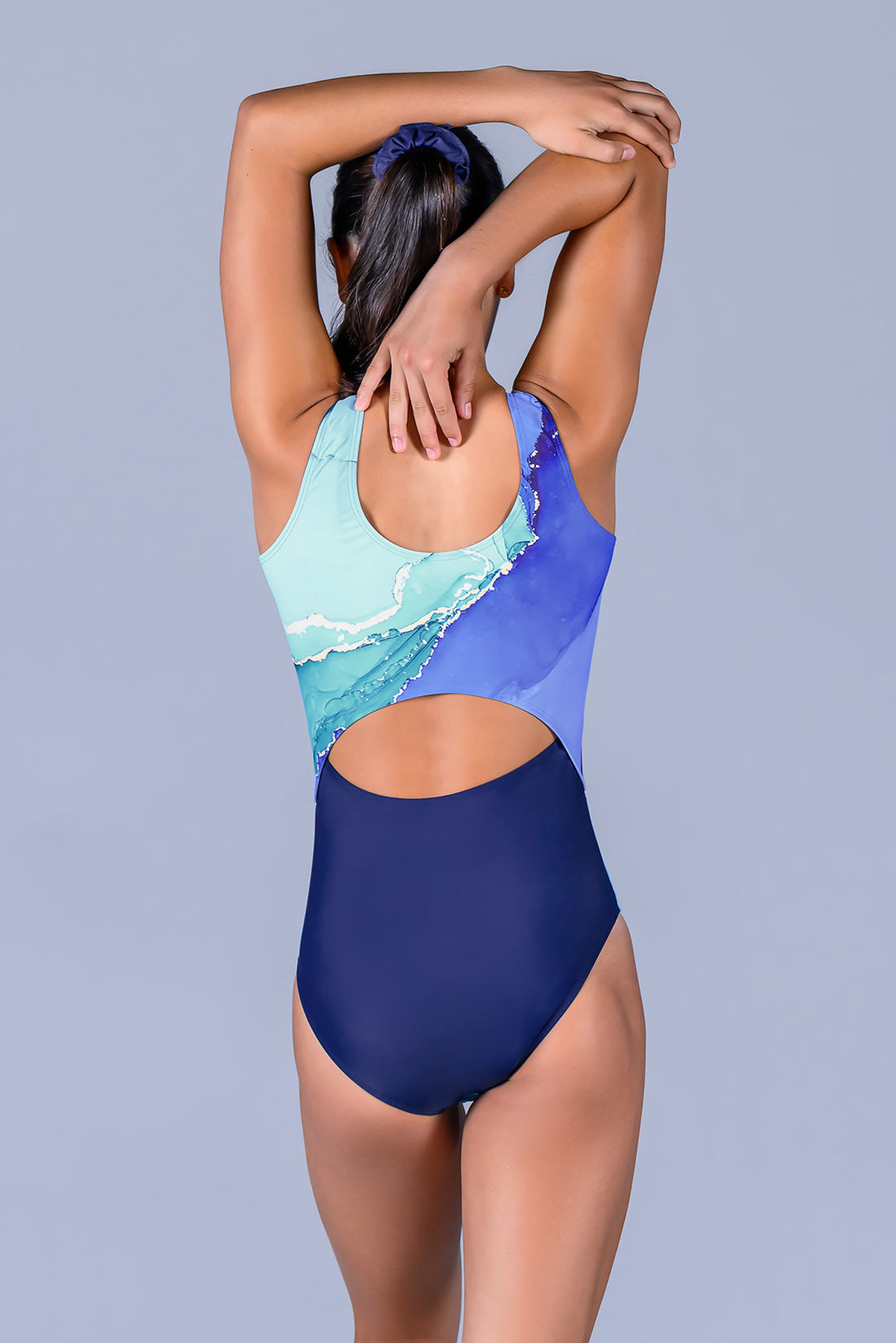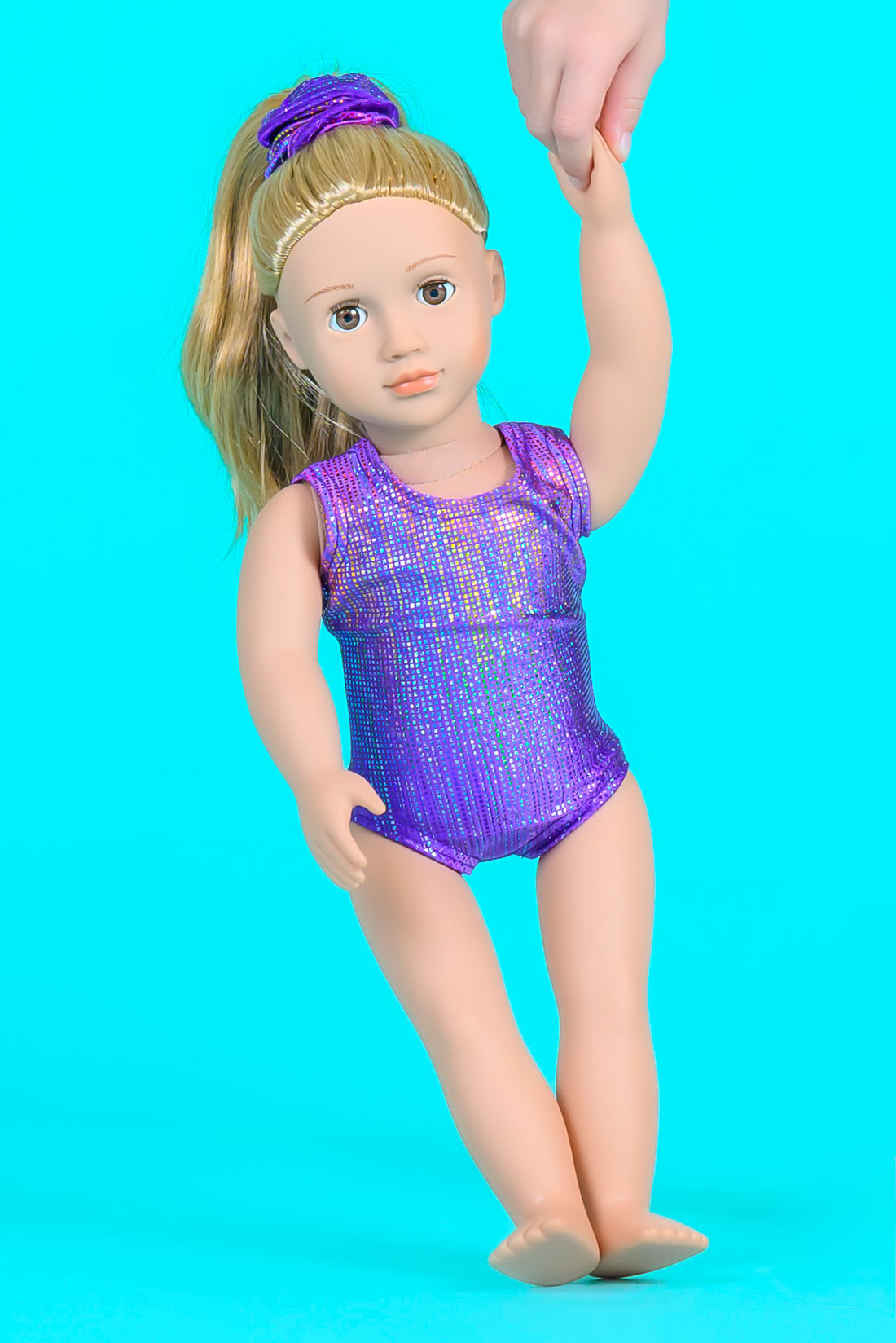Guest Post: Anna Kojac, Mental Toughness Coach for Gymnasts
Anna Kojac, M.Ed., is a former gymnast, sports psychology expert, and mental toughness coach for gymnasts who knows that fostering self-love is an essential component to gymnastics training to support athletes in and out of the gym.
Thank you, Anna, for sharing your advice about how parents and coaches can help gymnasts increase their self-love, and why it's so important.

For a gymnast self-love is an important mental tool that can affect her confidence and ability to do gymnastics. While the connection between self-love and gymnastics ability might not be that obvious at first, self-love is a valuable skill set that needs to be fostered in every gymnast.
Don’t get me wrong. It’s not that every gymnast is void of self-love. Often this isn’t the case at all. But participating in a sport that values perfection, combined with having to successfully compete difficult skills can leave gymnasts in a tough spot. It’s easy for them to be knocked down mentally and to think less of themselves on a pretty consistent basis.
Gymnastics is one of the few sports where every tenth matters. It’s a sport where a flexed toe or tiny wobble can make the difference between winning and losing an event. And when a gymnast is “on stage” for a judge to pick apart her routine, it can bring down her self-worth a notch every time.
Practicing to strengthen self-love daily forms a protective bubble around your gymnast, keeping her sense of self up, even in the face of critical feedback from coaches or judges. If she doesn’t feel good about herself in the gym, she may lose interest in the sport or worse yet, may associate her mistakes and failures in gymnastics with a sense of being a failure as a person. Self-love will make it easier to go after a skill with determination and grit.
Gymnasts who have higher levels of self-love speak more kindly to themselves. They are often able to disconnect their failures from their feelings of self-worth and are more forgiving of their mistakes. They accept their flaws and work on overcoming them without self-judgment. All of this leads to increased motivation and resiliency, which are important mental toughness traits for gymnasts to possess, not only in gymnastics but in life.
Wouldn’t self-love, then, be an amazing trait to foster in our gymnasts so they can not only excel in gymnastics but also become resilient, happy adults who value themselves?! And yet, gymnastics as a culture is notorious for tough-love coaching methods that often devalue gymnasts and break down their feelings of self-worth.
What can parents do to help their gymnasts increase their self-love?
- Encourage your gymnast to stand in front of the mirror and repeat the words “I love you” to her reflection. She might feel awkward at first, but this exercise gets easier with consistent practice. Every morning when she’s brushing her teeth she should do this exercise so that it becomes a habit. She can even place a sticky note on the mirror as a reminder.
- Have your gymnast write a letter to herself from the perspective of older self. She can write about the things she admires about her younger self and why she’s so proud of her. On rough days, this is a great letter to re-read for a quick boost of self-love.
- Encourage your gymnast to maintain a self-love journal where she writes down at least 3 things she loves about herself every day. If writing about herself proves to be too challenging at first, your gymnast can write down 3 things she is grateful for in her life and eventually start adding in things she loves about herself to the list. Even a general sense of gratitude can increase your gymnast’s feelings of self-love, so it’s worth it to start there.
- Have your gymnast create a self-love board that she hangs in her room. On it are all things that your gymnast loves. This board is there to help her feel good when she looks at it. Feeling happy and positive also helps increase feelings of self-love. And not surprisingly, gymnasts who are happier perform better in gymnastics, which in turn gives them more confidence and positive feelings of self-worth.
- Praise your gymnast for qualities and traits she has as a person, instead of just praising her gymnastics skills. Say things like “You have a really kind heart. I love how you’re always helping your teammates during practice” instead of “Your giants on bars look great. Keep it up.” It’s not that you can’t praise her for doing a skill well, you just want to make sure you’re praising her more on her character traits than on her skills. Skills will go away but character traits last forever. If she feels valued only for her skills then she will have a hard time finding her sense of self-worth when she struggles to learn a skill or when she eventually leaves the sport of gymnastics for good. The idea is to empower gymnasts with a mental skill set that will be beneficial for them throughout life and not just while they’re in gymnastics.
What can coaches do to help foster self-love in their gymnasts?
- End practice with a team-love circle. Invite gymnasts go around and say something they noticed one of their teammates doing well that day. The more they can give praise and love on their teammates, the better the gymnasts will start to feel about themselves. Plus this is a great bonding experience for teammates and everyone leaves the circle feeling good. It’s a win-win.
- Have a big whiteboard or large notepad on an easel that gymnasts can write on as they enter the gym for practice. Each day you can have a new prompt set up for them that all the gymnasts can answer. Things like “Today I’m looking forward to…” and “I’m feeling grateful today because…” are ideas that get them into a positive mindset and help foster a sense of self-worth and gratitude in the gym.
- Have each gymnast write down a time when she was courageous and brave in gymnastics on a piece of paper or sticky note. Hang them all up on a team bulletin board so all the gymnasts can read these statements. Being brave is an important part of the self-love journey and vice versa. The more self-love a gymnast has, the easier it is for her to find courage to do hard things. The more brave she is, the more she feels a sense of self-love and worth.
- Create a large cube or die that has different question prompts on it. Have your gymnasts take turns rolling it and answering questions either before practice begins or in the middle of practice during break. You can ask things like “I felt most confident in gymnastics when…” or “I am most proud of myself for….” These questions get gymnasts thinking about their strengths which will help them foster a stronger sense of self-love.
- Just like parents, coaches should try to praise effort and character in their gymnasts instead of just skills. “Great effort. You didn’t give up” is a more impactful statement than “Your giants are looking good today.” When you praise character you build up feelings of self-worth and help your gymnasts learn to love qualities about themselves that they possess. These are qualities that we hope will be there long after they leave the sport of gymnastics.
Practicing Self-Love Benefits the Whole Gymnast
Self-love is an important aspect of a gymnast’s experience. When her self-love is higher, she will enjoy gymnastics more and give forth more effort. On the other hand, when she feels a lower sense of worth and love for herself, she will give up more easily and is more likely to quit gymnastics than to stick with it. Our goal, then, as parents and coaches should be to help our gymnasts develop a strong sense of self-love so they can enjoy gymnastics more, try harder and have more resilience during tough times, and walk away from gymnastics with character traits that will help them succeed in life.
Free Self-Love for Gymnasts Resources from Stick It Girl
- Confidence Boosting Statements and many other free downloads on www.stickitgirl.com
- 31 Days of Confidence Challenge for Gymnasts (free course) www.stickitgirl.thinkific.com
- Self-Love Bingo Challenge for Gymnasts starting on 1/25 on Instagram @stick.it.girl
Are you interested in sharing your unique gymnastics story on your blog? Please get in touch! Start here to learn more and apply.



















































































































































































